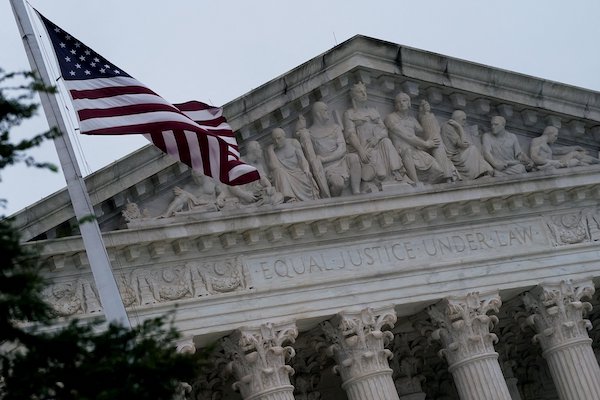
WASHINGTON — In a unanimous decision June 29, the Supreme Court sided with a Christian mail carrier who had been required to work Sundays for the U.S. Postal Service against his religious beliefs that the day was one of worship and rest.
The 9-0 ruling threw out a lower federal court’s ruling that had sided with the Postal Service and rejected the former mail carrier’s claim that requiring him to work on Sundays violated federal anti-discrimination law.
The lower court ruling on this case, by the 3rd U.S. Circuit Court of Appeals in Philadelphia, said that absences by the Pennsylvania employee, Gerald Groff, placed too much of a hardship on his co-workers and his employer.
But the nation’s highest court, in an opinion written by Justice Samuel Alito, ordered the 3rd Circuit to reconsider the case, stressing that the employer must “show that the burden of granting an accommodation” has “substantial increased costs in relation to the conduct of its particular business.”
In its ruling, the court overturned its 1977 decision that said employers had to “reasonably accommodate” an employee’s religious beliefs and practices, so long as it did not create an “undue hardship” on the business.
Based on this decision, it could now be easier for employees to obtain religious accommodation in the workplace.
During oral arguments in this case in April, Justice Neil Gorsuch suggested that the federal government and Groff needed to find some “common ground.”
Some of the justices also indicated that the case should be sent back to lower courts to clarify how far employers should go to accommodate their employees.
When Groff began working as a postal carrier in Pennsylvania in 2012, the postal carriers did not work Sundays. This policy changed in 2015 when the USPS signed a contract with Amazon to deliver its packages daily.
Groff refused to work on Sundays and at first this was not an issue, but in 2018 he was disciplined for not reporting to work on Sundays, and he resigned a year later.
After resigning, Groff sued the Postal Service for failing to accommodate his request. He argued that the Postal Service’s failure to reasonably accommodate his religion violated Title VII of the Civil Rights Act, the federal law prohibiting discrimination against employees based on their religious practices.
When a federal district judge rejected that argument, Groff appealed to the U.S. Court of Appeals for the 3rd Circuit, which upheld that decision.
The court of appeals said giving Groff an exemption from working on Sunday caused more than a minimal, or “de minimis,” cost for the Postal Service because it affected the rest of his coworkers, requiring them to cover his shifts or deliver more mail.
In his appeal before the Supreme Court in Groff v. DeJoy, the issue before the justices was whether they would consider overturning a precedent set nearly 50 years ago about how employers should accommodate their employees’ religious practices.
The justices hinted at potentially clarifying their 1977 ruling in Trans World Airlines v. Hardison, which said employers were not required to make religious accommodations that constituted an “undue hardship.”
This standard is met if accommodating the employee would require more than a trivial or minimal cost, the opinion added.
Solicitor General Elizabeth Prelogar, who represented the Postal Service for the Biden administration, urged the court not to completely overturn this decades-old decision.
But Aaron Streett, the attorney representing Groff, said the 1977 ruling, and the minimum cost standard it highlighted, should be reversed because it allowed employers to deny religious accommodations by citing any trivial business inconveniences.
Richard Garnett, a law professor at the University of Notre Dame in South Bend, Indiana, and director of the Notre Dame Program on Church, State, and Society, told The Tablet earlier this year that the case gives the court the “opportunity to revisit, and correct, a 1977 ruling that most observers, across the political spectrum, agree was wrongly decided.”
He said that the Hardison ruling “badly distorted and weakened federal protections against discrimination in the workplace.”
Garnett also said it is “likely that there will be consensus among the justices that the federal rules against religious discrimination at work will be given the meaning and effect that Congress intended.”
The Notre Dame law professor joined seven other legal scholars in a brief supporting Groff’s case that said, “It is far more neutral to accommodate employees’ religious practices than to fire them for practicing their faith.”
The brief said the U.S. Equal Employment Opportunity Commission receives “thousands of religious discrimination complaints each year, some of which include requests for accommodation” and that under the court’s previous ruling, “all but a handful of these requests are dead on arrival.”
